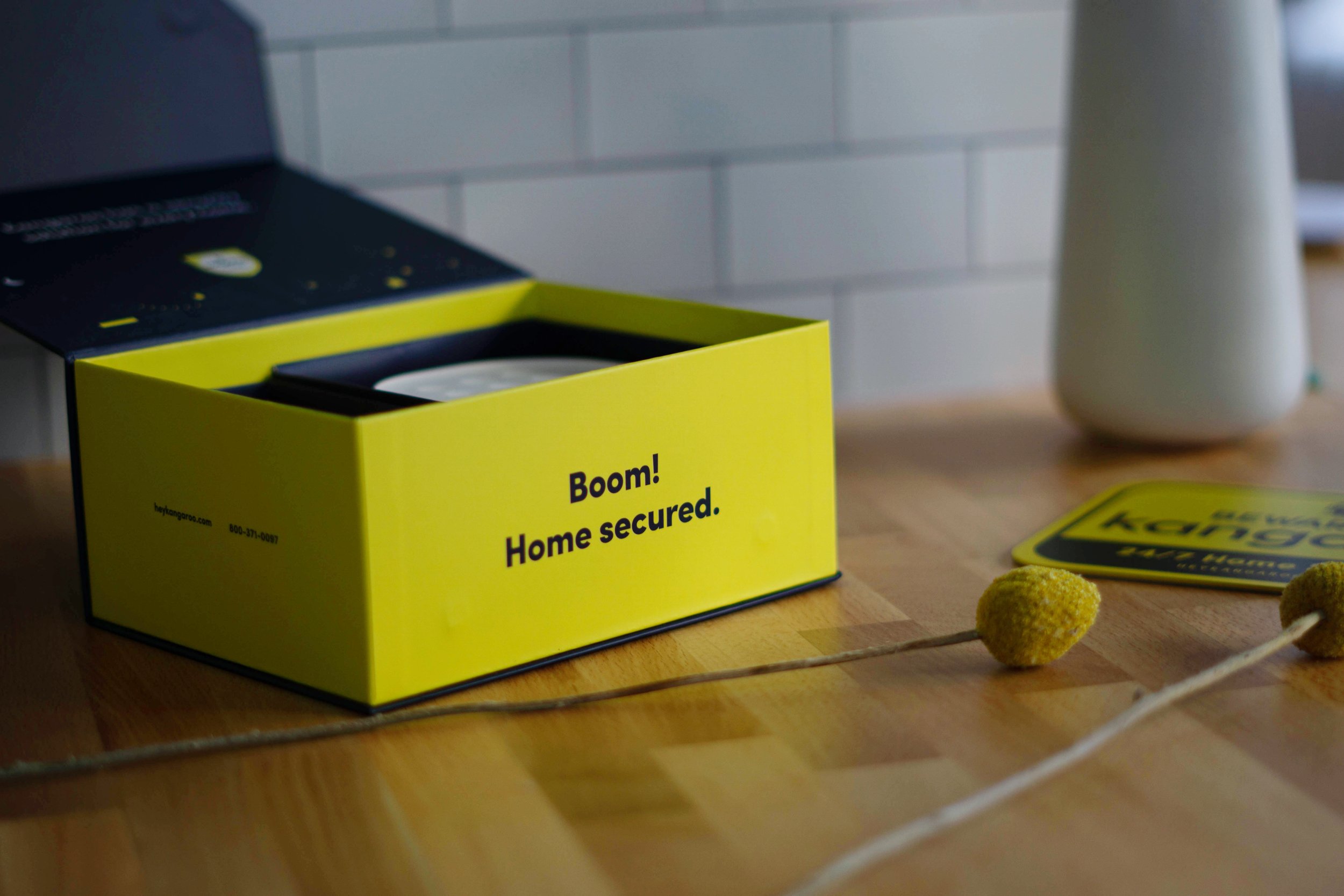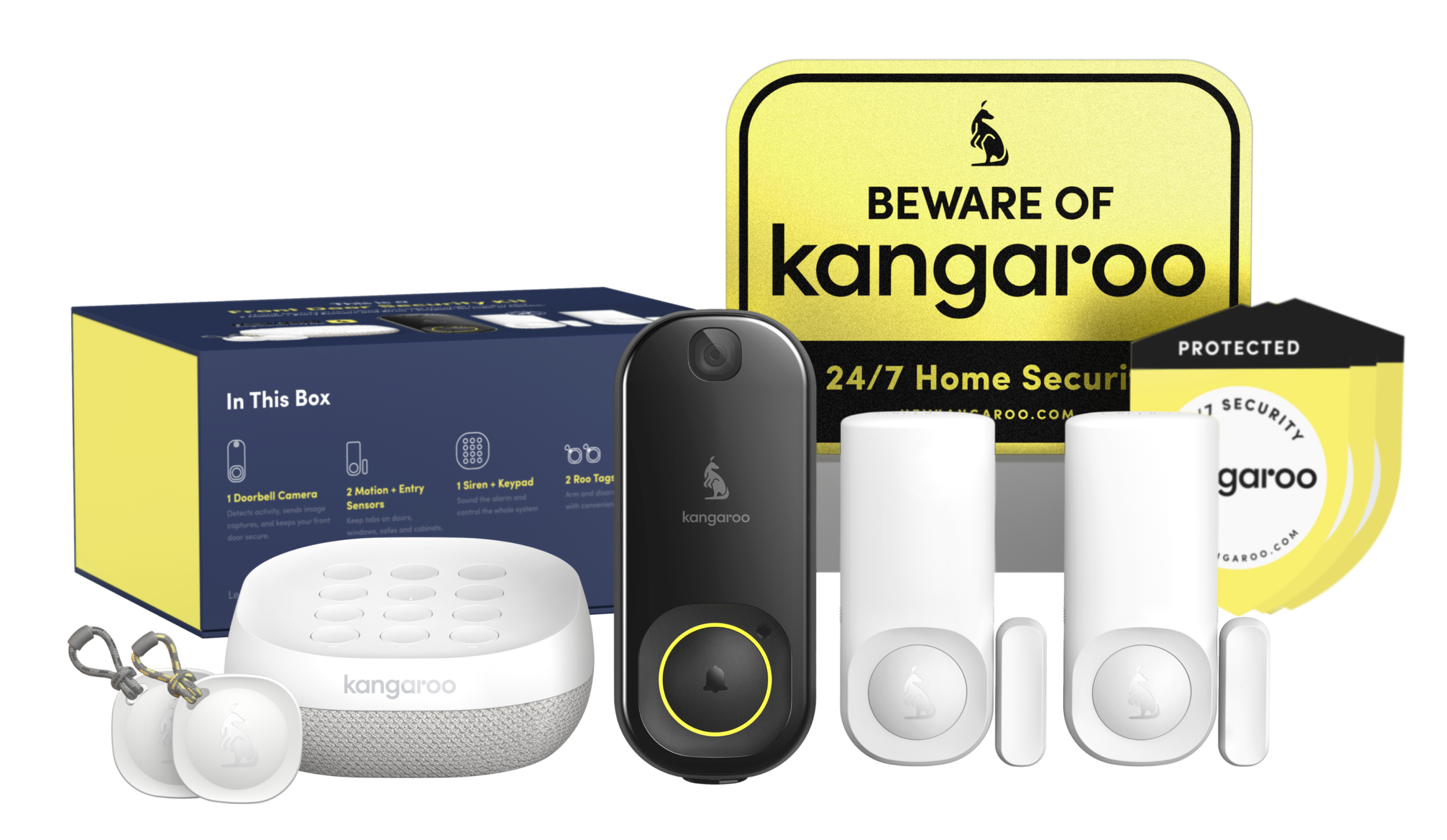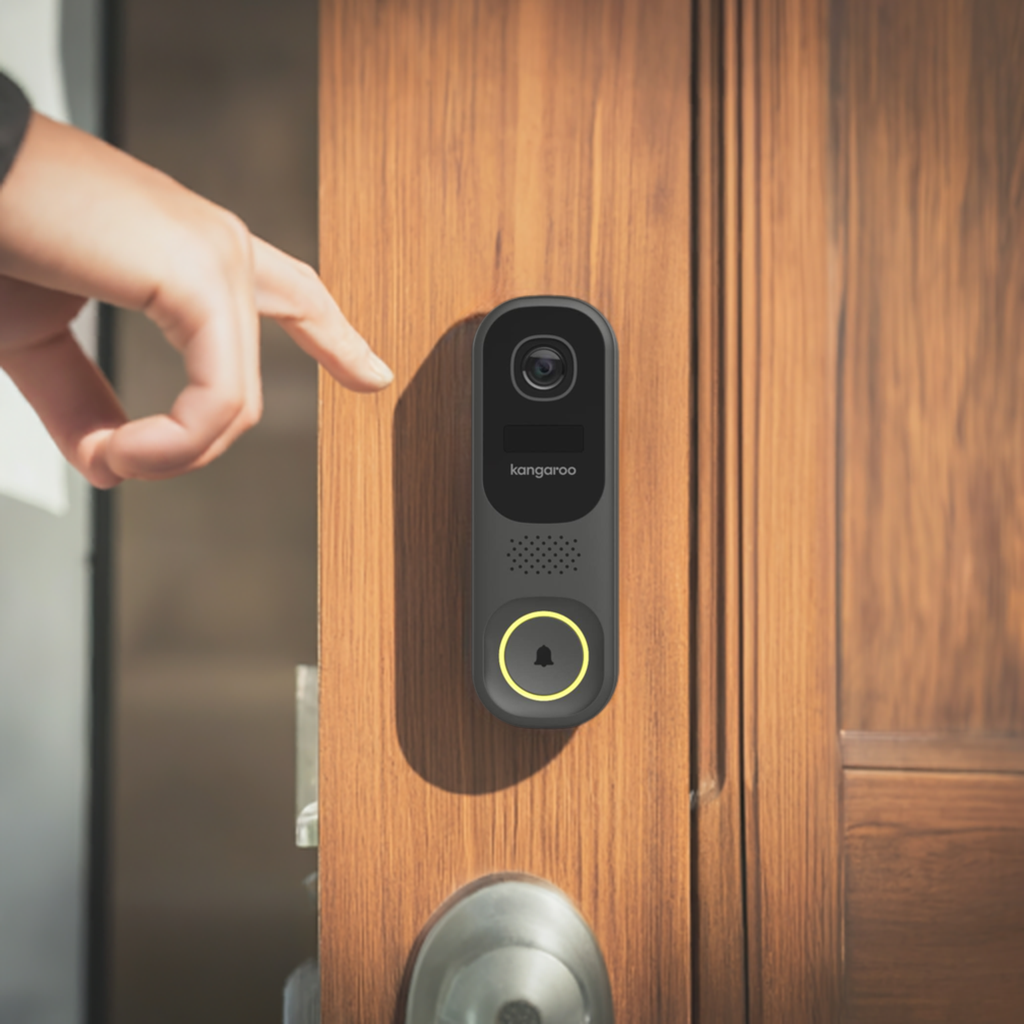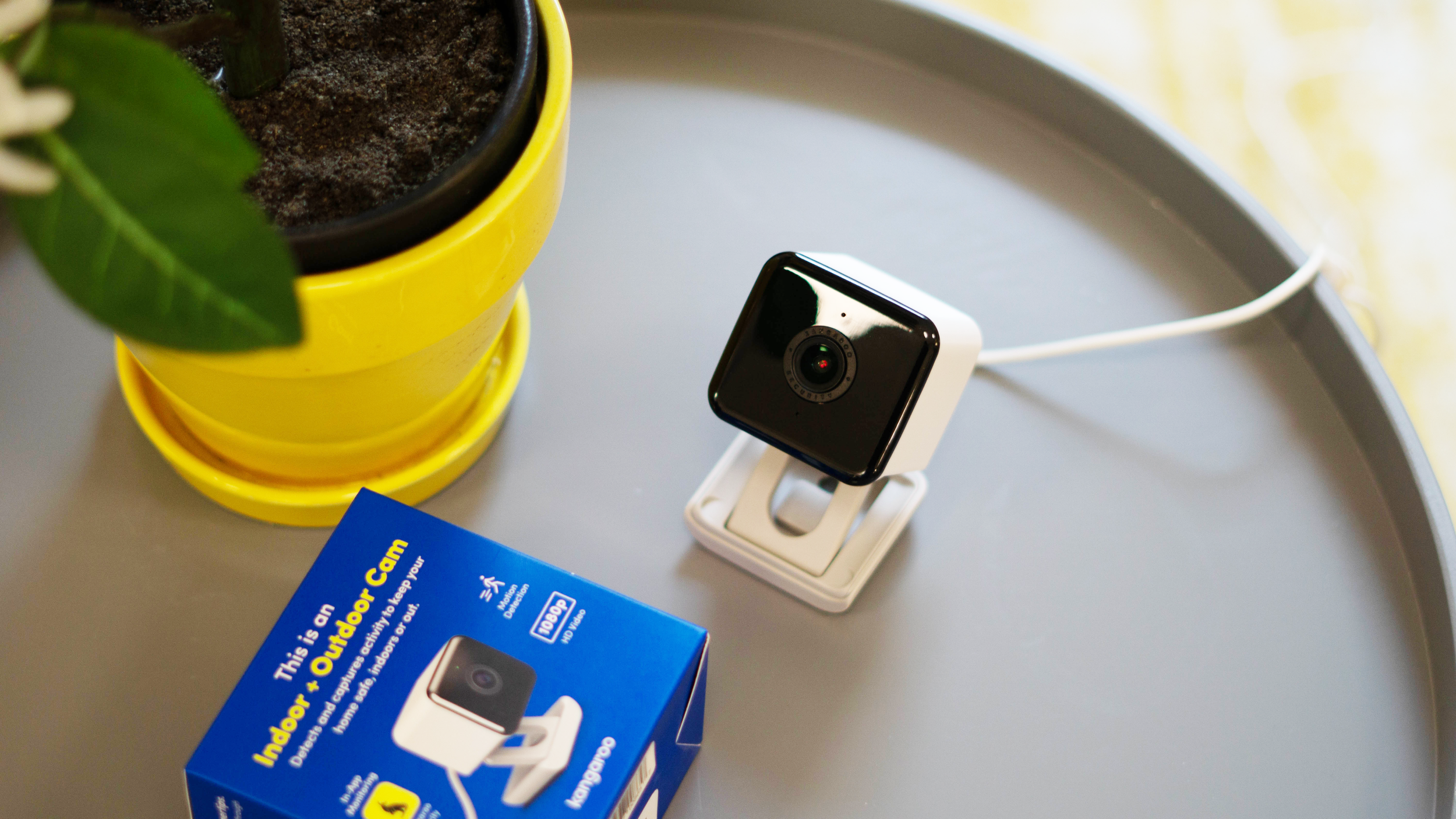Decoding the Best Self Monitored Home Security Systems
Why Choose a Self-Monitored, No-Contract Home Security System?
Traditional security systems often come with long-term contracts, hidden fees, and limited flexibility. However, modern homeowners and renters are shifting towards contract-free, self-monitored security systems that provide affordability, control, and ease of use. One standout in this space is Kangaroo Home Security, offering no-subscription security solutions that keep you protected on your terms.
Key Benefits of Contract-Free Security Systems
No Monthly Fees – Self-monitor your home for free without recurring costs.
DIY Installation – Set up your system in minutes without professional help.
Complete Flexibility – No long-term contracts or cancellation fees.
Smart Home Integration – Works with smart devices for a seamless security experience.
Privacy Control – No third-party monitoring unless you choose it.
Self-Monitoring vs. Professional Monitoring: Which One is Right for You?
Self-Monitoring:
Receive real-time alerts via a mobile app.
Control your security settings from anywhere.
No monthly fees – a cost-effective solution.
Ideal for homeowners and renters who want to stay in control.
Professional Monitoring:
24/7 emergency response services.
Instant dispatch for break-ins, fires, and medical emergencies.
Available with Kangaroo’s Complete Protect Plan at an affordable monthly rate.
Best for those seeking added peace of mind.
Breaking Free from Traditional Contracts: The Downsides of Long-Term Security Agreements
Many home security providers lock customers into 36- to 60-month contracts with early termination fees that can cost hundreds or even thousands of dollars. According to a 2023 Consumer Reports survey, 62% of homeowners prefer flexible, month-to-month security plans over rigid, long-term commitments (source).
Kangaroo home security system throws out the contract playbook. You're not locked into lengthy agreements. Instead, you choose the plan that works for you, whether it's self-monitoring for free or adding professional monitoring with a simple monthly subscription. This empowers you to control your security without feeling trapped.
Here's how Kangaroo breaks the cycle
No Contracts – Cancel anytime, no penalties.
Upgrade Easily – Add new devices as needed.
Affordable Equipment – No overpriced packages or hidden costs.
Simple and Customizable
Gone are the days of complicated installations and equipment overload. Kangaroo takes a DIY security system approach, offering a user-friendly system that's easy to set up yourself. Plus, you can customize it to your needs. Want just a motion sensor and a siren? No problem. Need a full suite of sensors with outdoor cameras for comprehensive protection? Kangaroo has you covered, all without the need for a technician visit.
Affordability You Can Smile About
Traditional home security system can leave a dent in your wallet. Kangaroo offers a budget-friendly alternative. The equipment is competitively priced, and the flexible monitoring plans allow you to choose the level of service you need without breaking the bank.
| Device Name | Price |
|---|---|
| Indoor + Outdoor Camera with CamProtect | $49.99 |
| Front Door Security Kit with Professional Monitoring | $279 |
| Doorbell Camera + Chime | $39.99 |
| Video Doorbell + Chime | $69.99 |
| Water + Climate Sensor | $29.99 |
| Motion + Entry Sensor | $29.99 |
| Siren + Keypad and Roo Tags (Bundle) | $69.99 |
Peace of Mind on Your Terms
Whether you're a renter, a homeowner, or someone who values flexibility, Kangaroo caters to your lifestyle. With Kangaroo, you get the peace of mind of a secure home without the commitment headaches that come with traditional systems.
Kangaroo: It's More Than Just Security
Kangaroo goes way beyond your average security system. Sure, it offers essential features like motion sensors and sirens to deter intruders. But Kangaroo empowers you to create a truly connected smart home environment.
Imagine receiving an alert on your phone if a pipe bursts in your basement, thanks to Kangaroo's water and climate sensor. Or get a clear view of who's at your door with the option of a photo or video doorbell. Kangaroo offers a range of security cameras, including indoor and outdoor options, so you can keep an eye on every corner of your property, all from your smartphone app.
With Kangaroo, security is just the beginning – it's the foundation for a smarter, more convenient home.
Here's a breakdown of the specific products mentioned:
Water + climate sensor: Detects leaks and helps prevent water damage.
Motion + entry sensor: Triggers alerts when doors or windows open unexpectedly.
Photo doorbell: The device takes a rapid sequence of photos, which are then stitched together to create motion pictures.
Video doorbell: Provides a live video feed of your doorstep.
Indoor + outdoor camera: Offers continuous monitoring inside and outside your home.
Siren + keypad: Deters intruders with a loud alarm and allows for easy system arming and disarming.
Kangaroo Reviews: Customers love our DIY system
Choosing a reliable home security system doesn’t have to mean breaking the bank. With Kangaroo Home Security, users are finding an affordable, straightforward way to secure their homes without sacrificing quality. Here’s what real customers have to say about their experiences with Kangaroo’s DIY-friendly setup, dependable performance, and the peace of mind it brings:
"Ok the best! I recommend it to everyone n ne one looking for a decent camera that won't break the bank. This security set up was an ease to set up even easier to navigate and the very best thing I knew I needed but won't have to go out to find. I got all I need now thanks guys!!" - Jess
"Have used Kangaroo home security devices for about a year. Very happy with products so today I have ordered more devices to upgrade my security." - Sound
"Word is that you get what you pay for, I feel like I stole from this company because this device is phenomenal for the price. Outstanding A+ Rating" - Deann
Taking Control of Your Home Security
Flexibility and Freedom are essential. Kangaroo Home Security System understands that. With our no-contract approach, affordable equipment, and user-friendly system, we empower you to take control of your home security on your own terms. So, ditch the drama and embrace the freedom that Kangaroo offers.
Self-Monitor for Free: Enjoy basic security features like motion sensors and sirens with real-time smartphone alerts, all without a monthly monitoring fee. Perfect for those who want a DIY approach and the ability to manage their system independently.
Add Professional Monitoring, Month-to-Month: Want the peace of mind of 24/7 professional monitoring? Kangaroo offers flexible monthly subscriptions that you can easily add or remove at any time. No long-term commitments, no hidden fees, just the security you need on your terms.
Ready to explore a smarter way to secure your home? Visit Kangaroo's website today and see how our system can work for you!
Q&A: Security Systems with Contracts vs. Contract-FreeYour
Thinking about a DIY home security system but not sure if a contract is right for you? This Q&A will help you navigate the options!
-
DIY systems, like those from Kangaroo Home Security, SimpliSafe Ring Alarm Pro or Ring Alarm, allow you to install and manage the system yourself. Contract systems, offered by companies like Frontpoint or Vivint, typically come with professional installation and monitoring included in the contract.
-
There's no single "best" system. It depends on your needs and preferences. DIY systems offer flexibility and affordability, while contract systems often have professional installation and may include extras like 24/7 monitoring.
-
Look for systems with:
Motion sensors ,window sensors and door sensors: Detect break-ins.
Video doorbell or doorbell camera: See who's at your door and potentially answer remotely.Find the best security cameras for your needs.
Indoor camera and/or outdoor camera: Keep an eye on key areas inside and outside your home.
Glass break sensor: Detects the sound of breaking glass.
Smart home compatibility: Works with Apple homekit, Amazon Alexa or Google Assistant for voice control.
Local storage or cloud storage: Store recorded video footage for later review.
Starter kit: Many systems offer starter kits with essential components you can expand later.
-
Contract systems from companies like Frontpoint or Vivint offer professional installation and monitoring. These systems often include features like:
24/7 professional monitoring: Trained professionals respond to alerts.
Cellular backup: Ensures your system stays connected even if the power goes out.
Security cameras: Indoor, outdoor, or even floodlight cameras for enhanced security.
Smart home integration: Integrate your security system with other smart home devices like smart locks or thermostats.
Keypad: Arm and disarm your system easily.
-
Yes! Many DIY systems, like Kangaroo Home Security, SimpliSafe home security or Ring Alarm, offer separate self-monitoring plans or optional professional monitoring subscriptions.
-
Several companies offer a hybrid approach. They may provide DIY systems with features like Zigbee compatibility (a smart home communication protocol) and allow you to choose self-monitoring or add professional monitoring later.
So, which option is right for me?
Consider these factors:
DIY skills and comfort level: Comfortable with tech and basic installation? DIY might be a good fit.
Monitoring needs: Want 24/7 professional monitoring? A contract system might be ideal.
Smart home integration: Do you have smart home devices you want to integrate with your security system? Look for systems compatible with Alexa, Google Assistant, or specific protocols like Zigbee.
Budget: DIY systems are often cheaper upfront, while contract systems might have bundled features but require long-term commitments.
-
Many DIY systems offer a wide range of add-on components to customize your security setup. Here are some popular options:
Smoke detectors and carbon monoxide detectors: Provide additional peace of mind by detecting fire and CO hazards.
Flood sensors: Alert you to potential water leaks before they cause major damage.
Medical alert buttons: Offer emergency assistance for elderly or vulnerable household members.
Smart locks: Control door locks remotely using your smartphone and integrate them with your security system.
Environmental sensors: Monitor temperature and humidity fluctuations that could indicate problems.
-
Video doorbells come in various forms:
Standard video doorbell: Provides a live video feed and two-way talk functionality when someone rings the doorbell. (e.g., Kangroo and Ring Video Doorbell)
Video doorbell with motion detection: Triggers alerts when motion is detected near your door, even if someone doesn't ring the bell. (e.g., Kangaroo, SimpliSafe Video Doorbell Pro)
Floodlight camera doorbell: Combines a video doorbell with a built-in floodlight for enhanced security and visibility at night. (e.g., Ring Floodlight Cam)
-
Yes! Some security cameras offer local storage options. They record footage onto an SD card or other local storage device, allowing you to review recordings even without an internet connection. (e.g., Kangaroo, Ring Alarm Pro, Eufy Security, Indoor Cam 2K Pan & Tilt)
-
The base station is the central hub of your security system. It communicates with all the other devices and connects to the monitoring service (if applicable). The keypad is a separate device used to arm and disarm the system, often with a panic button for emergencies. (Some systems may combine these functions into a single unit.)
-
Not anymore! Many DIY systems, like Kangaroo Home Security, Ring Alarm and SimpliSafe, offer optional professional monitoring plans you can subscribe to monthly. These plans connect your system to a monitoring center staffed by professionals who will respond to alerts.
-
Absolutely! Here are some helpful resources:
Security camera review sites: Websites like CNET and The Spruce review and compare popular security cameras and systems.
Consumer Reports: Offers unbiased reviews and buying guides for home security systems.
Manufacturer websites: Most home security system manufacturers have detailed information about their products and features on their websites.







